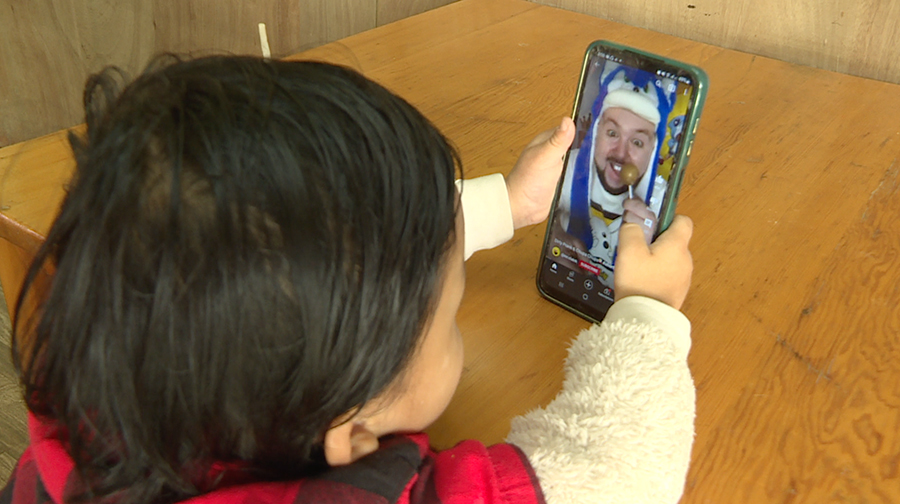
The majority of children with autism brought in for treatment so far this year are those with virtual autism. This is according to records maintained with the Jigme Dorji Wangchuck National Referral Hospital in Thimphu. 200 cases of autism have been reported this year alone. Virtual autism is an acquired condition in children due to overexposure to screens during their infancy. It can be cured if a child seeks professional help before the age of six, but it becomes a lifelong condition if it is not addressed during the critical age.
These days technology has become an inevitable element of everyday life including parenting. With smartphones widely available, it has become common amongst parents to expose their children to digital content.
However, the World Health Organisation (WHO) recommends no screen time for babies under 2 years of age. Babies between the age of two and four should get no more than one hour of screen time a day. However, parents in Thimphu BBS talked to were found exposing their children to screens way beyond the recommended time. Some parents said their children throw tantrums when phones are taken away from them.
“I let her watch YouTube for at least one to two hours a day. She learns a lot from YouTube but it also has disadvantages. When we talk to her, she does not reply and I observe her becoming a little dull now,” said Dawa Zam, a mother.
“In the afternoon, my 5-year-old daughter watches YouTube for four to five hours. She knows how to say the name of fruits such as apples and oranges. There are also disadvantages where she does not eat meals on time and it also affects her eyes,” said Sangay Choden, another mother.
Despite picking up new words and information from online videos, the experts warn parents of the negative impact overexposure to screens could have on children’s cognitive abilities. They say virtual autism is one of the risky screen-induced conditions that could have lifelong health implications.
It has symptoms similar to those of autism spectrum disorder or ASD, which is the neurodevelopmental disorder a child is born with. Children with ASD often have problems with social communication and interaction, and restricted or repetitive behaviours or interests. However, children can also develop a similar condition which is virtual autism if their screen time is not monitored.
“Normally during infancy which is the period from birth to one year, and toddlerhood, which is from 1 to 3 years, a child is not supposed to be exposed to screen excessively. They are supposed to be getting a natural stimulation where a peer child and parent-child exposure is very important,” said Nima Dorji, Medical Speech Pathologist of JDWNRH.
He said the condition is curable as long as the child gets diagnosed early and starts the intervention plan.
During the intervention, parents are advised not to stop their toddler’s screen time immediately but gradually reduce the duration. If cases are severe, parents are recommended to bring their children to the hospital. Currently, there are only two medical speech pathologists who deal with such cases in the country at the national referral hospital.
Singye Dema
Edited by Kipchu








